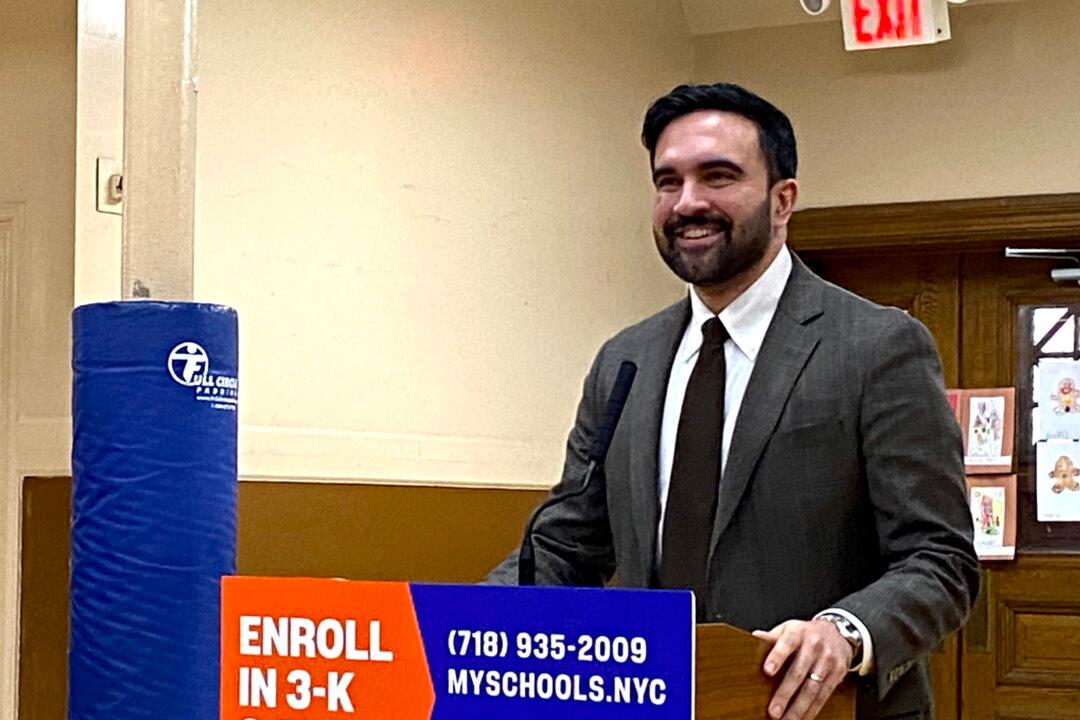WASHINGTON—Because of the sequester, civilian employees of the Department of Defense began receiving individual furlough notices May 28.
The furloughs will begin July 8 and will mean up to 11 days of forced time off, for possibly 750,000 workers at DOD. The cut in work time over the summer will mean an approximately 20 percent cut in pay. Most other federal departments cut budgets elsewhere and will not furlough employees large-scale.
This may lead the most able federal workers to seek jobs in the private sector, said Robert Tobias, director of Key Executive Leadership Programs at American University.
He predicts furloughs will negatively affect the federal workforce in the long term. To be effective, the government “needs people who are passionate, who are creative, who are innovative,” people to “do the work that is needed to create solutions and implement solutions.” Even if federal employment remains comparatively attractive, Tobias doubts the government will be able to attract top talent.
If Congress does not act and DOD does not find other ways to cut its budget, furloughs may continue for years. With their future uncertain at the government, Tobias predicts top employees will ditch federal jobs for better jobs in the private sector. Workers aren’t leaving yet, because the economy is lousy, according to Tobias.
But federal agencies may choose to exempt “their best and brightest” from furloughs and find other ways to cut funding, according to Heritage Foundation labor policy analyst James Sherk. Many departments have cut bonuses, travel, and benefits, frozen hiring, postponed technical upgrades and new investments rather than furlough employees. Sherk thinks that now they know the sequester won’t be going away, department heads can make more strategic budget cuts and avoid furloughs altogether next year.
Sherk said the furlough will cause some workers to leave, but an exodus across the federal workforce is not likely. The average federal employee is better compensated working for the federal government than the private sector even with the furlough, according to Sherk. The Heritage Foundation found that compensation for federal employees is 30 percent higher than for those doing identical jobs in the private sector.
This figure is controversial. Some studies find the higher federal wages are going to workers who are more highly educated than private sector employees. According to a 2012 paper by Princeton University’s Griswold Center for Economic Policy Studies, “Indeed, if public sector workers have substantially more education than private sector employees, they might be underpaid compared to what they would earn in the private sector, a point made by Nobel laureate Paul Krugman in 2010: “[T]hose workers aren’t overpaid. Federal salaries are, on average, somewhat less than those of private-sector workers with equivalent qualifications.”
The Congressional Budget Office also found federal employees are paid more than those in the private sector. In a study comparing compensation, the Congressional Budget Office found that for those with a master’s degree or less federal wages plus benefits were, on average, greater than those received by workers in private industry with equivalent education. However, for those top employees with a professional or doctorate degree, wages plus benefits were on average greater in the private sector.
With better opportunities elsewhere, top employees may not stick around if furloughs cut into their pay. Certainly indiscriminate cuts are less desirable than targeted funding cuts, said Sherk, but the budget needs to be balanced and if Congress won’t act, furloughs are better than nothing.




